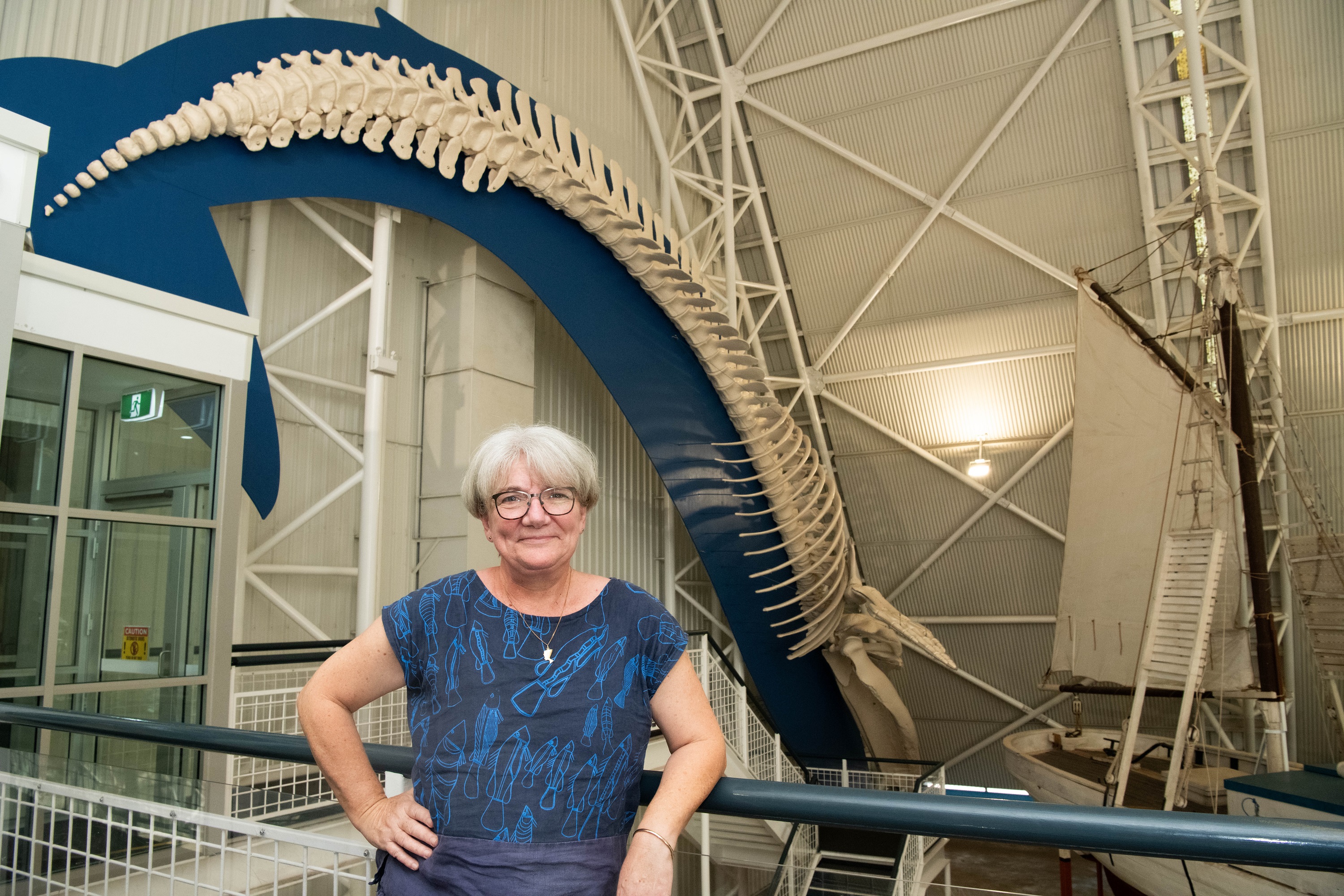Rare footage reveals intimate family lives of blue whales
DARWIN, NT - NORTHERN TERRITORY, AUSTRALIA, July 4, 2024 /EINPresswire.com/ -- The intimate family lives of blue whales, including a blue whale nursing its calf underwater, has been revealed in extraordinary footage captured in a project led by an international marine ecologist from Charles Darwin University (CDU) and Australian National University (ANU).
Marine scientist Dr Karen Edyvane, who is an Adjunct Senior Research Fellow at CDU, an Associate Professor at ANU, and a UN-recognised expert on the Arafura and Timor Seas has been conducting research in Timor-Leste since 2006.
She said the evidence of blue whale’s reproductive and calving behaviour has remained largely ‘unknown’ in the scientific community, until now.
“Our decade-long research and ‘citizen science’ program has documented some of the lesser-known, intimate reproductive behaviours of blue whales, some for the very first time,” she said.
“From newborn calves and nursing mothers to amorous adults in courtship, the waters of Timor-Leste really are providing blue whale scientists with some of our first glimpses into the private lives of one of the world’s largest but most elusive animals.”
The research was published by the Scientific Committee of the International Whaling Commission (IWC) and draws on more than a decade of observations and datasets.
Associate Professor Edyvane said the findings not only confirm Timor-Leste’s waters as a major migration corridor for blue whales, but also an unprecedented location for blue whale research.
“Timor-Leste’s deep, nearshore waters, particularly in the narrow Ombai-Wetar Strait along the north coast of the country, provide one of the most accessible and best locations for blue whale research in the world,” she said.
“Since 2014, our program has sighted over 2,700 blue whales in Timor-Leste’s waters, monitoring their annual migration along the country’s north coast. On a global level, these numbers are truly extraordinary.”
Dr Elanor Bell, a researcher at the Australian Antarctic Division and an Australian Government representative within the IWC’s Scientific Committee, said: “The long-term blue whale monitoring in Timor-Leste is providing hugely valuable insights into blue whale movements and behaviours in tropical waters.
“This evidence suggests that these waters are important foraging areas for blue whales and critical for reproduction. Until now, it has been a mystery when, where and how blue whales reproduce.”
Dr Capri Jolliffe, who has been studying blue whales in Australian waters for over a decade said the long-term monitoring in Timor Leste is providing critical insights into the ecology of the Austral-Indonesian population of pygmy blue whales.
“This research clearly highlights that the life history characteristics and patterns of habitat use of pygmy blue whales differ significantly from their Antarctic blue whale counterparts. They really are tropical animals,” Dr Jolliffe said.
“It also highlights the critical importance of collaboration between blue whale researchers in Australia and Timor-Leste. These animals undertake long ocean migrations, crossing maritime waters and international boundaries – we share these animals. Understanding of this population and the threats they face throughout their entire migratory range is fundamental for ongoing conservation and recovery of this species. For effective species management, support for Australia and Timor-Leste research cooperation must be a major priority.”
Timor-Leste research partner Jose Filipe Dias Quintas, who is National Director for Tourism and Environment Research from the Ministry of Tourism and Environment (Timor-Leste), said a major feature of the success of the Timor-Leste’s blue whale monitoring program, known locally as ‘Baleia no Golfinhu iha Timor-Leste’, has been its volunteer efforts, ‘citizen science’ and partnerships.
“Over the past decade, we’ve all shared a common purpose in finding out more about pygmy blue whale migration – to understand and better protect our extraordinary ocean life and also, to support the sustainability of our rapidly growing whale tourism industry,” he said.
“It’s really developed and grown into a major collaboration between researchers, whale tour operators and tourists, student volunteers, and local fishermen - sharing information, images and observations about blue whale sightings. They’ve shared with us some amazing blue whale images. It’s really been an exciting and shared journey.
“Now, we really need to use this valuable new information to ensure we fully protect and conserve these animals when they pass through Timor-Leste’s waters and beyond. For this, we urgently need cooperation and support from Australia and the wider international community.”
The footage can be viewed on Dr Edyvane's project website.
Raphaella Saroukos
Charles Darwin University
email us here
Visit us on social media:
Facebook
X
LinkedIn

